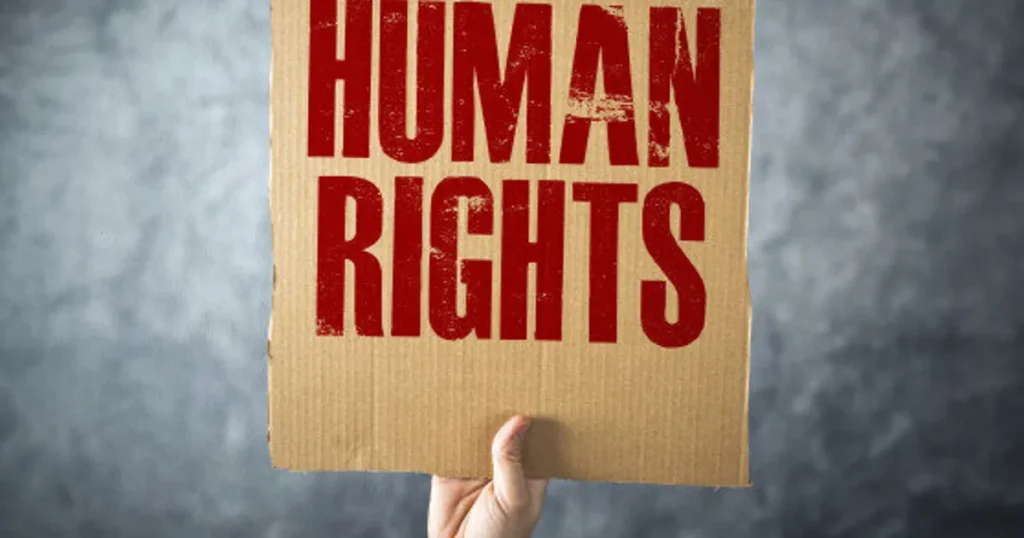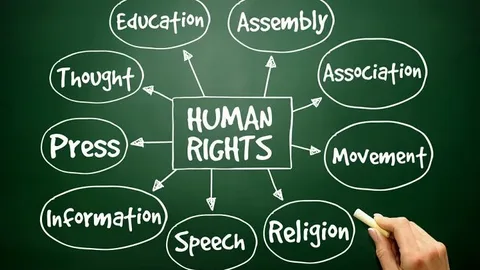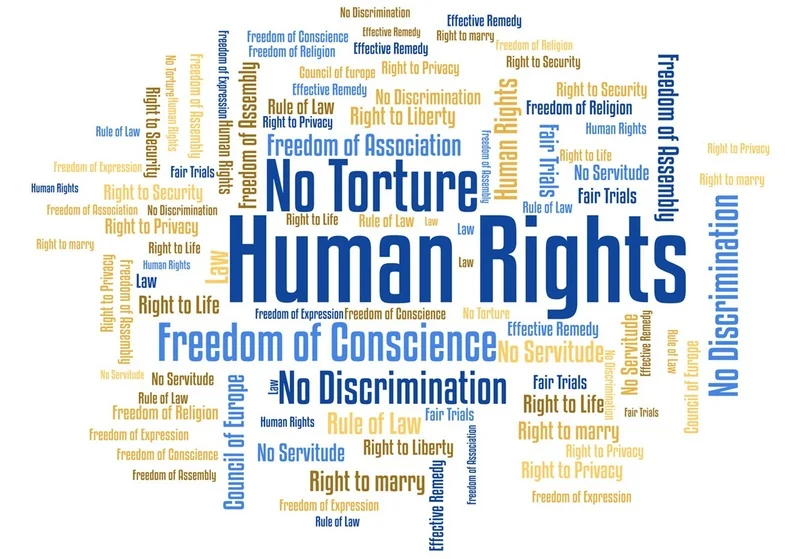Established in 1979, the Illinois Human Rights Act stands as a landmark piece of legislation that positions Illinois among the leading states in combating discrimination. The Illinois Human Rights Act ensures all residents are treated fairly, promoting dignity, respect, and equality across numerous facets of daily life, including employment, housing, financial credit, and public accommodations. One unique strength of the Illinois Human Rights Act is its expansive and adaptive nature; legislators regularly update the Act to encompass emerging forms of discrimination, reflecting contemporary social concerns.

For individuals, businesses, and landlords alike, the Illinois Human Rights Act establishes transparent guidelines and legal responsibilities, promoting proactive compliance and accountability. Employers benefit from clear expectations that minimize disputes, while residents gain assurance that their rights are safeguarded comprehensively. This dynamic legislation is administered by the Illinois Department of Human Rights, which investigates complaints and enforces compliance, underscoring the state’s commitment to robustly protecting civil rights.
Through continuous evolution, the Illinois Human Rights Act not only addresses historical inequalities but also anticipates future challenges, solidifying Illinois’s reputation as a proactive advocate for social justice, fairness, and inclusion. Thus, the Illinois Human Rights Act remains integral to fostering an equitable society statewide.
Protected Classes Under the Illinois Human Rights Act

The IHRA explicitly prohibits discrimination based on several distinct protected classes:
- Race and Color: Protection against discrimination based on skin color or racial identity.
- Religion: Freedom from discriminatory practices due to religious beliefs or affiliations.
- Sex and Gender: Equal treatment irrespective of gender identity, expression, or biological sex.
- Sexual Orientation: Safeguards against discrimination based on an individual’s sexual orientation.
- National Origin and Ancestry: Protection from discrimination based on birthplace, heritage, or ancestry.
- Age: Individuals 40 and older are protected from age-related discriminatory practices.
- Marital Status: Ensures fairness regardless of whether an individual is single, married, divorced, or widowed.
- Disability: Prohibits discrimination against individuals with physical or mental disabilities, mandating reasonable accommodation.
- Military Status and Unfavorable Military Discharge: Protection for service members or those discharged under unfavorable but non-discrediting conditions.
- Order of Protection Status: Protection for individuals who have obtained a court-issued protection order.
- Pregnancy: Guarantees fair treatment in employment and accommodations for pregnant individuals.
Illustrative Protection Scenarios:
- An employer refusing to promote an employee due to religious attire.
- A housing provider denying rental applications from individuals based on their national origin.
- Employers overlooking qualified older job candidates due to age biases.
Key Provisions and Rights Protected
The Illinois Human Rights Act (IHRA) provides robust protections addressing discrimination comprehensively across several key domains:

Employment Discrimination Protections
Under the Illinois Human Rights Act, employers are required to ensure workplaces are free from discrimination. All employment-related decisions, such as hiring, promotion, termination, disciplinary actions, and compensation, must be strictly based on merit and qualifications, without prejudice toward any protected characteristic.
Housing Discrimination Protections
The Illinois Human Rights Act prohibits discrimination by landlords, property sellers, real estate agents, and financial institutions. Individuals must have equal access to housing opportunities, including sales, leases, rentals, and financing, regardless of their protected class. This provision ensures equitable housing rights for all residents in Illinois.
Public Accommodations and Access to Services
Businesses such as hotels, restaurants, theaters, and transportation services are mandated under the Illinois Human Rights Act to provide equal access to goods and services without discrimination. Ensuring nondiscriminatory practices fosters inclusivity, fairness, and equal treatment in public environments throughout Illinois.
Education-Related Protections
Educational institutions must offer equal opportunities in admissions, scholarships, educational programs, and extracurricular activities, irrespective of a student’s protected status, maintaining educational equality under the Act.
Sexual Harassment Prevention Provisions
Finally, the Illinois Human Rights Act requires workplaces to proactively combat sexual harassment through clearly defined policies, regular training, and transparent complaint procedures, ensuring swift responses to allegations and promoting safe, respectful workplace environments.
Responsibilities and Obligations for Employers, Businesses, and Landlords
Compliance with the Illinois Human Rights Act (IHRA) is essential, requiring proactive measures from organizations:

Develop and Implement Policies:
Employers, businesses, and landlords must clearly outline comprehensive anti-discrimination policies that explicitly communicate their commitment to equality. These policies should be documented, regularly updated, and easily accessible to all employees, stakeholders, and tenants.
Training and Education:
Regular training sessions must be conducted to educate staff, landlords, and service providers on recognizing, preventing, and addressing discriminatory practices. Training ensures awareness of obligations under the IHRA, fostering inclusive environments.
Complaint Procedures:
Organizations must establish clear, accessible procedures enabling individuals to report discrimination, harassment, or unfair treatment confidentially and without fear of retaliation. Effective complaint mechanisms help promptly address concerns.
Consequences for Non-Compliance:
Non-compliance with the IHRA may lead to severe consequences, including significant financial penalties, mandated compensation to affected individuals, costly litigation, required corrective measures, and potential damage to public reputation and business credibility.
How to File a Complaint Under the Illinois Human Rights Act
Anyone experiencing discrimination under the Act can file a complaint through a structured, accessible process:

- Documentation: Clearly document instances of discrimination, noting times, dates, locations, and involved parties.
- Filing with IDHR: Complaints must be filed with the Illinois Department of Human Rights within 300 days of the incident.
- Investigation: IDHR conducts thorough investigations, interviews involved parties, and reviews evidence.
- Resolution: Outcomes may range from mediated settlements to official hearings or potential court proceedings.
Recent Legislative Changes and Implications
The IHRA has undergone significant updates in recent years, reflecting societal and legislative shifts:
- Expanded Definitions: Inclusion of sexual orientation and gender identity to provide broader protections.
- Enhanced Sexual Harassment Measures: Strengthening employer obligations to provide harassment-free workplaces.
- Increased Penalties: More stringent penalties and corrective actions for repeated or severe violations.
These changes reinforce Illinois’ commitment to equality and have significant implications, compelling businesses to review and update their compliance strategies accordingly.
Case Studies and Examples
Employment Scenario
A major Illinois retailer faced substantial fines after terminating an employee who required maternity leave accommodations, showcasing the IHRA’s effectiveness in protecting pregnant employees’ rights.
Housing Scenario
A landlord was penalized after systematically denying housing to applicants with visible disabilities, highlighting the importance of compliance and fair practices in housing.
These examples demonstrate the real-world implications of IHRA enforcement and underscore the critical nature of compliance.
FAQs on the Illinois Human Rights Act (IHRA)
1. What is the Illinois Human Rights Act (IHRA)?
The Illinois Human Rights Act, established in 1979, is comprehensive anti-discrimination legislation designed to protect individuals from discrimination in employment, housing, public accommodations, and education based on protected classes such as race, gender, age, sexual orientation, and disability.
2. How do I file a discrimination complaint under the IHRA?
Complaints should be filed with the Illinois Department of Human Rights (IDHR) within 300 days of the discriminatory incident. You must document details clearly, including dates, times, locations, and involved parties. The IDHR will investigate and provide resolutions ranging from mediation to formal hearings.
3. What penalties can organizations face for non-compliance with IHRA?
Organizations failing to comply with IHRA face severe consequences, including substantial financial penalties, mandatory compensation to victims, required corrective measures, costly litigation, and potential harm to their reputation and credibility.
4. Who is protected under the Illinois Human Rights Act?
The IHRA explicitly protects several classes, including race, color, religion, sex, gender identity, sexual orientation, national origin, ancestry, age (40+), marital status, disability, military status, pregnancy, and order of protection status.
5. Are businesses required to provide training under IHRA?
Yes, the IHRA mandates businesses, employers, and landlords regularly provide comprehensive training programs to educate employees and stakeholders on recognizing, preventing, and addressing discrimination, harassment, and other prohibited behaviors.
Conclusion Illinois Human Rights Act
The Illinois Human Rights Act plays a crucial role in fostering fairness, inclusivity, and equality throughout the state. Individuals, employers, businesses, and housing providers must understand and uphold their obligations under this Act to maintain an equitable community. Knowledge of rights and responsibilities under IHRA not only helps avoid penalties but promotes a respectful and inclusive societal atmosphere. If discrimination occurs, timely action and utilizing available resources ensure appropriate remedies and uphold justice.
By embracing these principles, Illinois residents collectively contribute to a fairer, more equitable society where dignity and rights are preserved for everyone.
Explore: Topamax Ruined My Life: A Deep Dive into Real Experiences
Nexus Globes for the latest news on tech, health, and entertainment.




